To consider Pervez Musharraf a real force for peace is an absurdity, declares Ambassador T P Sreenivasan.
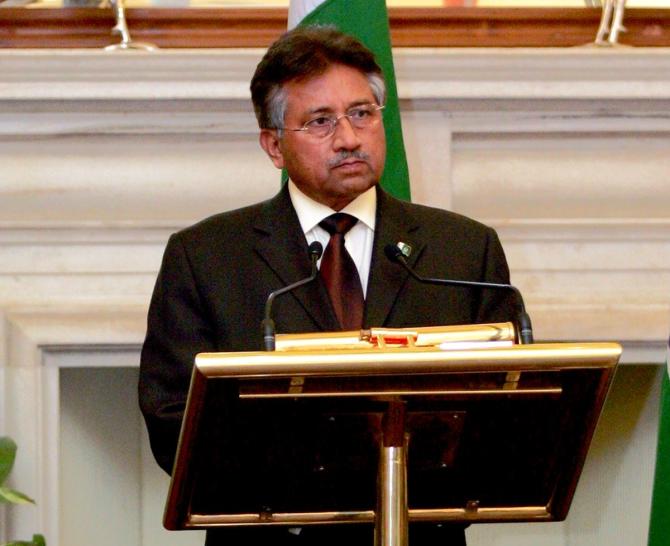
The perennial love-hate relationship Indians have with the leaders of Pakistan is proverbial.
Pakistani leaders are the cynosure of all eyes when they visit India during multilateral conferences, not to speak of the way they are feted on bilateral visits.
The adversarial relationship makes both sides particularly careful in dealing with each other so as to maintain the delicate balancing act, regardless of the ups and downs in the relationship.
Leaders of Pakistan, particularly of the military variety, are Westernised and generally sophisticated and inspire some awe in their counterparts.
The diplomats of India and Pakistan are fairly cordial socially and find more in common with each other than with those from other regions, who may be closer to them for political reasons.
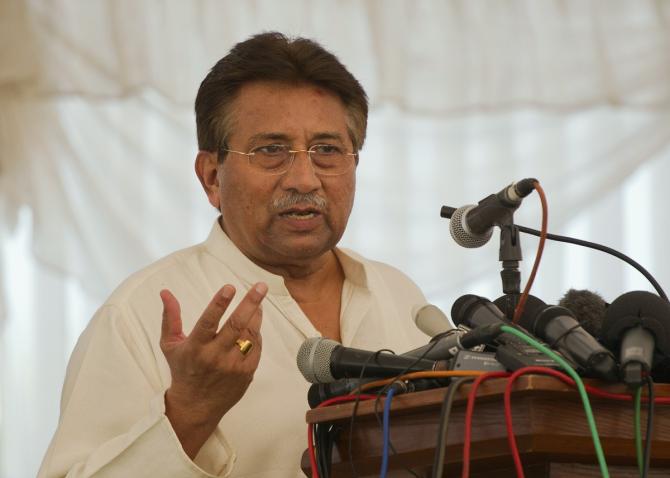
This particular chemistry often results in Indians looking for positive points in Pakistani leaders and diplomats.
Perhaps, Indians find their courtesy and courtly manners quite charming even when the hatred is palpable and Pakistani leaders stick to their positions on core issues.
The Bhuttos had their fans in India and there are many, who claim kinship with Pakistani leaders.
Prime Ministers I K Gujral and Nawaz Sharif got along well in Punjabi.
They agreed that India could not give Kashmir to Pakistan, nor could Pakistan take it.
Imran Khan had many friends in India, but did not lift a finger to improve relations with India.
Our journalists and others who visit Pakistan are generally treated well and they write nice things about the courtesy and hospitality of even leaders like Zia-ul Haq.
They even remark that it is our failure that India and Pakistan are at loggerheads even when there are those in Pakistan who mean well for India.
The peaceniks in India engage in track 2 diplomacy with and without the knowledge of the Government of India and find possibilities in fake proposals like 'No War Pact' and South Asia as a Nuclear-Weapon Free Zone.
The peace industry was very much alive and well till Prime Minister Modi learnt the hard way that personal gestures like gifts and attending weddings were of no value in building peace with Pakistan.
Those who shed tears over the demise of Pervez Musharraf are victims of the peace syndrome who do not realise that behind every peace proposal put forward by succeeding Pakistani leaders is a trap to undermine the fact that Jammu and Kashmir is an integral part of India.
Musharraf's four-point proposal for Kashmir, for instance, appeared to move away from the UN resolutions, but by suggesting that identified regions in Kashmir should be demilitarised, self-rule should be introduced and a joint management mechanism should be made consisting of Pakistanis, Indians and Kashmiris should be established, Musharraf questioned not only India's position, but also its intelligence.
To consider such a person a real force for peace is an absurdity. He cannot claim to be a martyr of peace by such pretences.
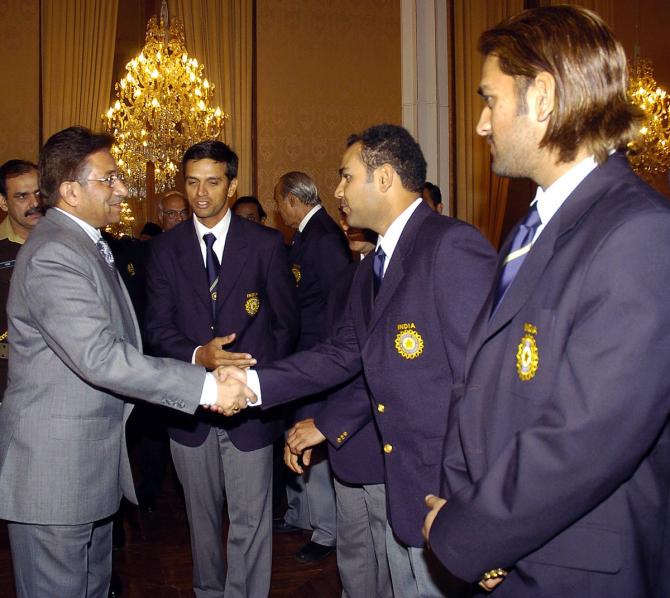
Musharraf was certainly a bundle of contradictions.
A dictator, who encouraged press freedoms, a soldier who enjoyed his Scotch in secret, engineered Kargil, but wanted to change India-Pakistan relations in Agra, condemned to death, but wanted to stage a comeback, the list is endless.
As for Kargil, there was never any doubt that Musharraf had masterminded it and executed it, but left it to Nawaz Sharif to face the music when President Clinton gave him an ultimatum to withdraw.
He states in his book that 'One myth is that the operation was launched without taking the political leadership into confidence', without elaborating further.
But he takes the full credit for Kargil by asserting that 'I would like to state emphatically that whatever movement that has taken place so far in the direction of finding a solution to Kashmir is due considerably to the Kargil conflict.'
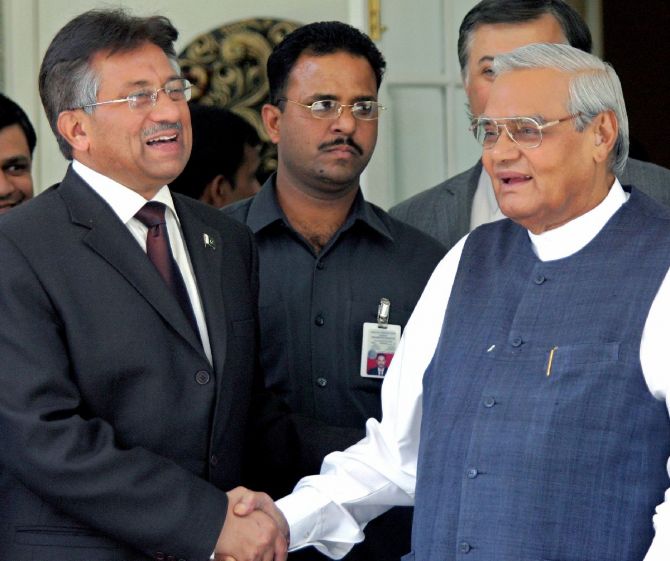
Musharraf's accounts of his meeting with Prime Minister Vajpayee and subsequent meetings with Prime Minister Manmohan Singh read like a plot he had hatched to change the Kashmir story.
He was disappointed that the draft Agra Declaration was rejected by India at the last minute, but it was obvious that the Declaration would have opened up a new set of problems.
Musharraf's record with India was such that India decided not to trust him.
Though he promised that Pakistan territory would not be used for terrorism against India, he would have resorted to terrorism had he not faced assassination attempts and problems with the judiciary and politicians in Pakistan.
The train bombings in Mumbai 2006 ended the act that he put on to change the Kashmir story by various devious proposals.
Musharraf's efforts at peacemaking gave the impression that he was a changed man. But his moves were aimed not at seeking peace, but to secure a place in history as a peace maker without relenting on Pakistan's position that the final settlement of Kashmir will not be the acceptance of the Line of Control, as anticipated in the Shimla Agreement.
An illusion of peace generated by an Agra declaration that Musharraf tried to promote failed because it was patently insincere and opportunistic.
His subsequent behaviour proved the point. The leopard had not changed its spots.
Ambassador Sreenivasan is a frequent contributor to Rediff.com and you can read his earlier columns here.
Feature Presentation: Rajesh Alva/Rediff.com
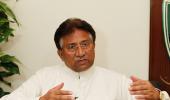








 © 2025
© 2025